Anderson Cooper Speaks at Tufts
– Allison Goldsberry
“I feel like I live this very normal existence and just a lot of people say hi to me on the street.”
It’s that sentiment that keeps Anderson Cooper, one of America’s most recognized news anchors, grounded in reality and capable of reporting the news while staying out of the story.
Cooper told an audience at Tufts University on Monday afternoon that he doesn’t think about himself as a public figure and reporters should minimize their egos and be “flies on the wall.” The CNN anchor, born into a wealthy, famous family, said he considers “celebrity stuff” like “gangrene” that does damage as it spreads.
“I know what it’s like to have a camera pointed at you in the lowest moment of your life,” said Cooper, referring to the public grieving he and his mother, Gloria Vanderbilt, had to endure after his older brother, Carter, committed suicide in 1988.
Cooper says the loss of his brother and the death of his father when he was just ten made him want to be around people who “spoke the language of loss.”
“I do what I do because of the losses I’ve experienced,” said Cooper.
Cooper, a Yale graduate, said he was attracted to war zones and imagined becoming a war correspondent. He used a fake press pass to launch his journalism career in Burma. He would shoot and edit his own footage and put himself in danger zones without protection. He recalled reporting for a year without a bullet-proof vest before being given a flimsy one that didn’t offer much protection. Cooper said he would sleep on building roofs and never had an armored vehicle before joining CNN.
The news anchor has reported from conflicts and disaster zones from all over the world and is known for his passionate coverage. Cooper wondered why people accept yelling and other displays of emotion from talk show hosts and pundits but are surprised when reporters display “genuine human emotions” of empathy or sadness. He said reporting with “soft eyes,” not hard ones, was important to give viewers who aren’t there the fullest sense of the story as possible.
“You have no business going to a place where tragedy has happened unless you’re willing to be moved by what you see,” said Cooper.
Cooper and his famous mother, Gloria Vanderbilt, are the subject of an HBO documentary that premiered on Saturday, Nothing Left Unsaid: Gloria Vanderbilt & Anderson Cooper. Cooper said it might be on CNN at the end of the month. He also has a new book out, “The Rainbow Comes and Goes,†which he co-authored with his mother.
Cooper was the featured speaker for the eleventh annual Edward R. Murrow Forum on Issues in Journalism at Tufts. Other prominent journalists that have spoken at Tufts include George Stephanopoulos, Ariana Huffington, Brian Williams, Katie Couric, Christiane Amanpour, Ted Koppel and Tom Brokaw.
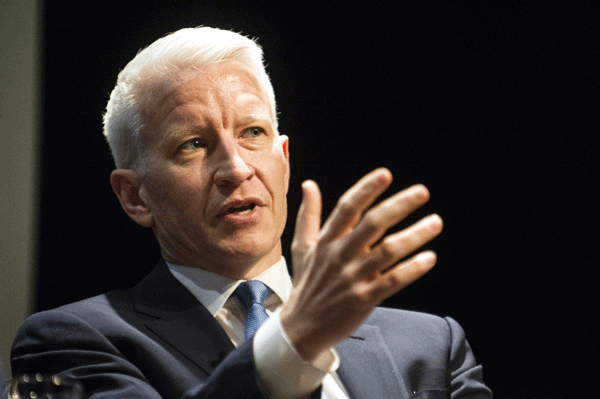
Credit: Alonso Nichols/Tufts University.
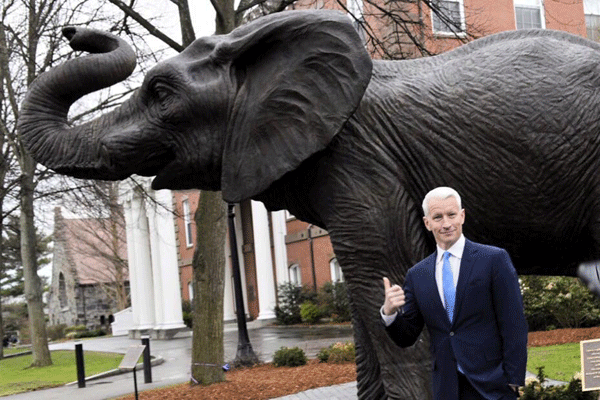
Credit: Tufts University.
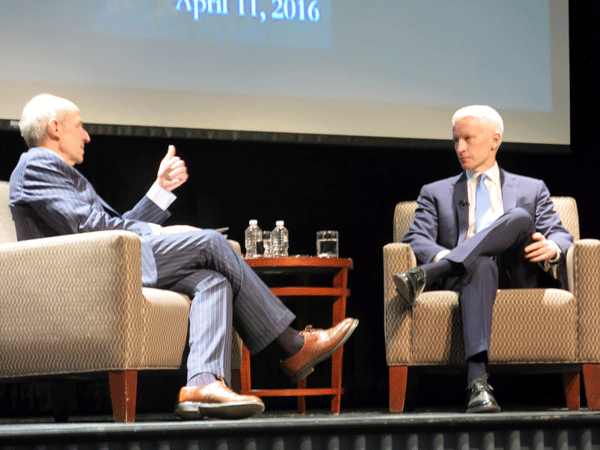
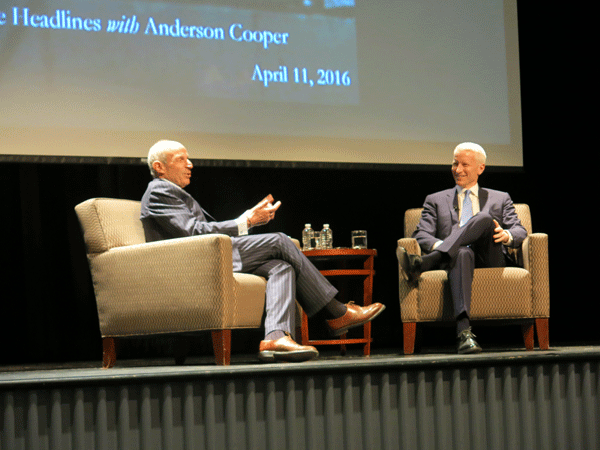
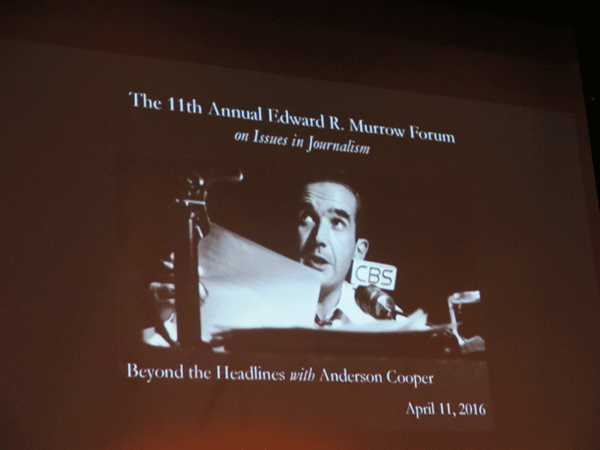
“‘You have no business going to a place where tragedy has happened unless you’re willing to be moved by what you see,’ said Cooper”
What a great quote!